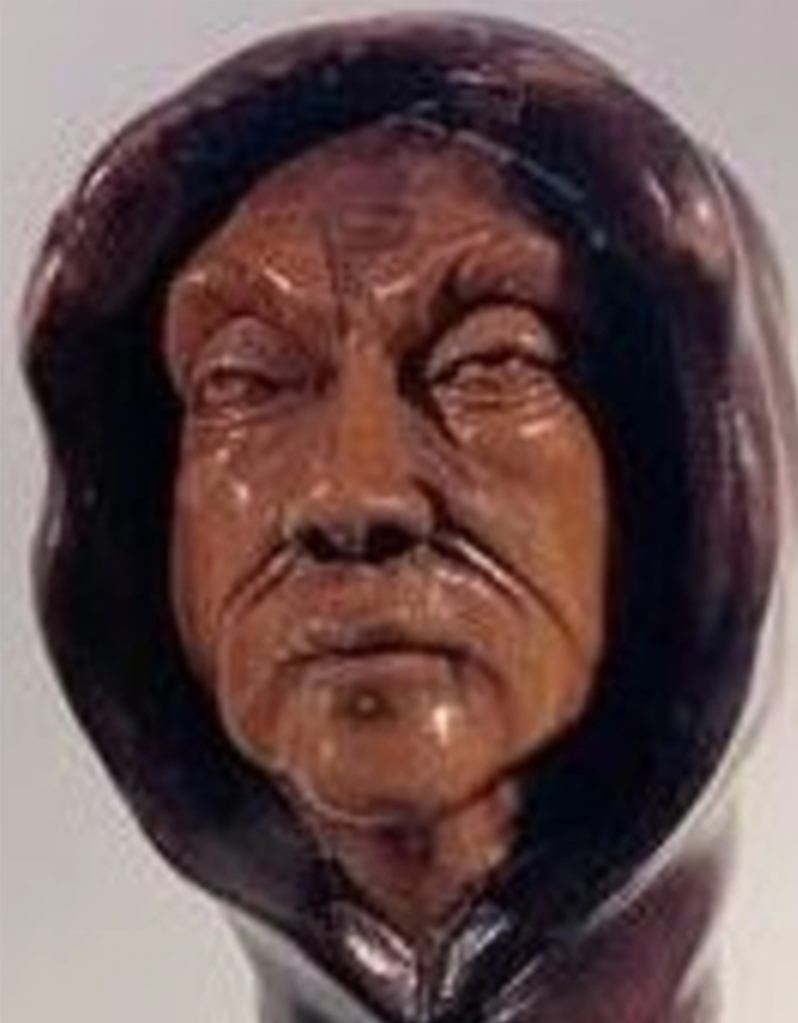Jack the Ripper only known facial composite found in archives
The suspected face of notorious serial killer Jack the Ripper has finally been revealed after police made a chilling discovery while trawling through old archives.
While the true identity of the infamous murderer has never been discovered, the only known facial composite of the killer has now been shared.
Among dozens of artifacts, the face was found etched into the handle of a wooden walking stick, which was owned by the police officer who spent years attempting to catch him.
Scotland Yard Detective Frederick Abberline was removed from the case in 1889 after failing to find Jack the Ripper, who terrorized the streets of London’s East End.
The chilling image is the only reported facial composite of the killer, whose identity remains a mystery more than a century later.
For years, the wooden cane artifact had been stored at the Police College in Bramshill, Hampshire, UK and was feared lost when the institution was shut down in 2015.
Thankfully, it was rediscovered by staff searching through memorabilia at the College of Policing’s headquarters in Ryton, West Midlands.
Now Jack the Ripper’s face has gone on display to highlight advancements in police technology to recruits.
A College of Policing spokesperson said two staff unearthed it when trawling through artifacts placed into storage following Bramshill’s closure.
“Finding this cane was an exciting moment for us,” the college’s content creator Antony Cash said.

“Jack the Ripper is one of the biggest and most infamous murder cases in our history and his crimes were significant in paving the way for modern policing and forensics as it caused police to begin experimenting with and developing new techniques as they attempted to try and solve these murders, such as crime scene preservation, profiling and photography.
“This walking cane is such a fascinating artifact which represents such a historically significant time in policing.
“It’s amazing that we can put it out on display here in Ryton, alongside the original newspaper cuttings, so that our officers can see first-hand how far we’ve advanced in policing since then.’’
Jack the Ripper brutally butchered at least five women over three months in 1888.
Each victim’s throat was cut and body mutilated in a way that suggested the killer had some knowledge of human anatomy.
Half a kidney extracted from one victim was mailed to the police, along with a series of taunting notes from the purported killer calling himself “Jack the Ripper”.
Police made strenuous efforts to unmask and trap him, but to no avail.
Their failure to find the serial killer sparked public outrage, which resulted in the resignation of London’s police commissioner.
The cane was gifted to Detective Abberline after he was taken off the case.
He retired from the Metropolitan Police in 1892 after 30 years of service, and died in 1929 without ever knowing Jack the Ripper’s real identity.
Read the full article Here


